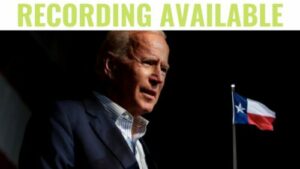Nationalism, Populism, and Democracy: A Global Perspective
FOUR TUESDAYS, OCTOBER 7, 14, 21, AND 28, 6:00–7:30 P.M.
PRIVATE RESIDENCE. DIRECTIONS WILL BE PROVIDED TO SUBSCRIBERS.
George Orwell, Notes on Nationalism, 1945:
“By ‘patriotism’ I mean devotion to a particular place and a particular way of life, which one believes to be the best in the world but has no wish to force on other people…. Nationalism, on the other hand, is inseparable from the desire for power.”
This four-lecture series will examine the complex interplay among nationalism, populism, and democracy across key regions of the world. Using a comparative approach, we will explore how these ideologies shape political systems, influence governance, and challenge democratic institutions in Latin America, North America, and Asia. Two lectures will focus on nationalism and populism in Latin America and the United States, analyzing major political movements, their effects on democracy, and the unique challenges faced in each region. The other two lectures turn to Asia: one will examine China’s distinctive fusion of nationalism and governance alongside its influence within the region, while the other highlights India’s role as the world’s largest democracy, exploring its political dynamics and regional significance.
This series will offer participants an opportunity to engage in meaningful discussions and gain a comparative understanding of how these powerful forces are reshaping societies and the global political landscape.
October 7: Latin America
Pablo M. Pinto is a Distinguished Professor and the director of the Center for Public Policy at the University of Houston’s Hobby School of Public Affairs. His areas of expertise include international and comparative political economy, comparative politics, globalization, and the role of ideology, socialization and self-interest in the formation of individual public policy preferences. Professor Pinto holds a law degree from Universidad Nacional de La Plata in Argentina; an MA from Aoyama Gakuin University in Japan; and a PhD from the University of California, San Diego. Prior to joining the University of Houston in 2014, he was a member of the faculty of Columbia University.
October 14: China
Steven W. Lewis is the C.V. Starr Transnational China Fellow in the China Studies Program at Rice University’s Baker Institute for Public Policy. He is a professor in the practice for Transnational Asian Studies in the School of Humanities at Rice University, the associate director of the Chao Center for Asian Studies, which he helped found in 2008, and affiliated faculty in Rice’s Politics, Law and Social Thought program. Professor Lewis has researched the growth of a transnational Chinese middle class, the influence of advertisements in new public spaces in Chinese cities, the development of privatization experiments in China’s localities, and the reform of China’s energy policies, national oil companies and international energy relations. He received his doctorate in political science from Washington University in St. Louis.
October 21: India
Prashanth Bhat is an assistant professor in the Jack J. Valenti School of Communication at the University of Houston. His research interests include anti-media populism, alternative social platforms, online hate speech, and partisan media with a particular emphasis on journalistic practice in India. Before entering academia, he worked for leading news organizations including the Times of India and Voice of America. Professor Bhat holds an MA from American University in Washington, D.C. and a PhD from the University of Maryland-College Park.
October 28: The United States
Boris Shor is an associate professor in the department of political science at the University of Houston. Among his many research interests are political parties, ideology, and polarization. Professor Shor taught previously at Georgetown University and was a visiting scholar at the University of California, Berkeley, and the University of Chicago. He earned his MA and PhD from the political science department at Columbia University.





